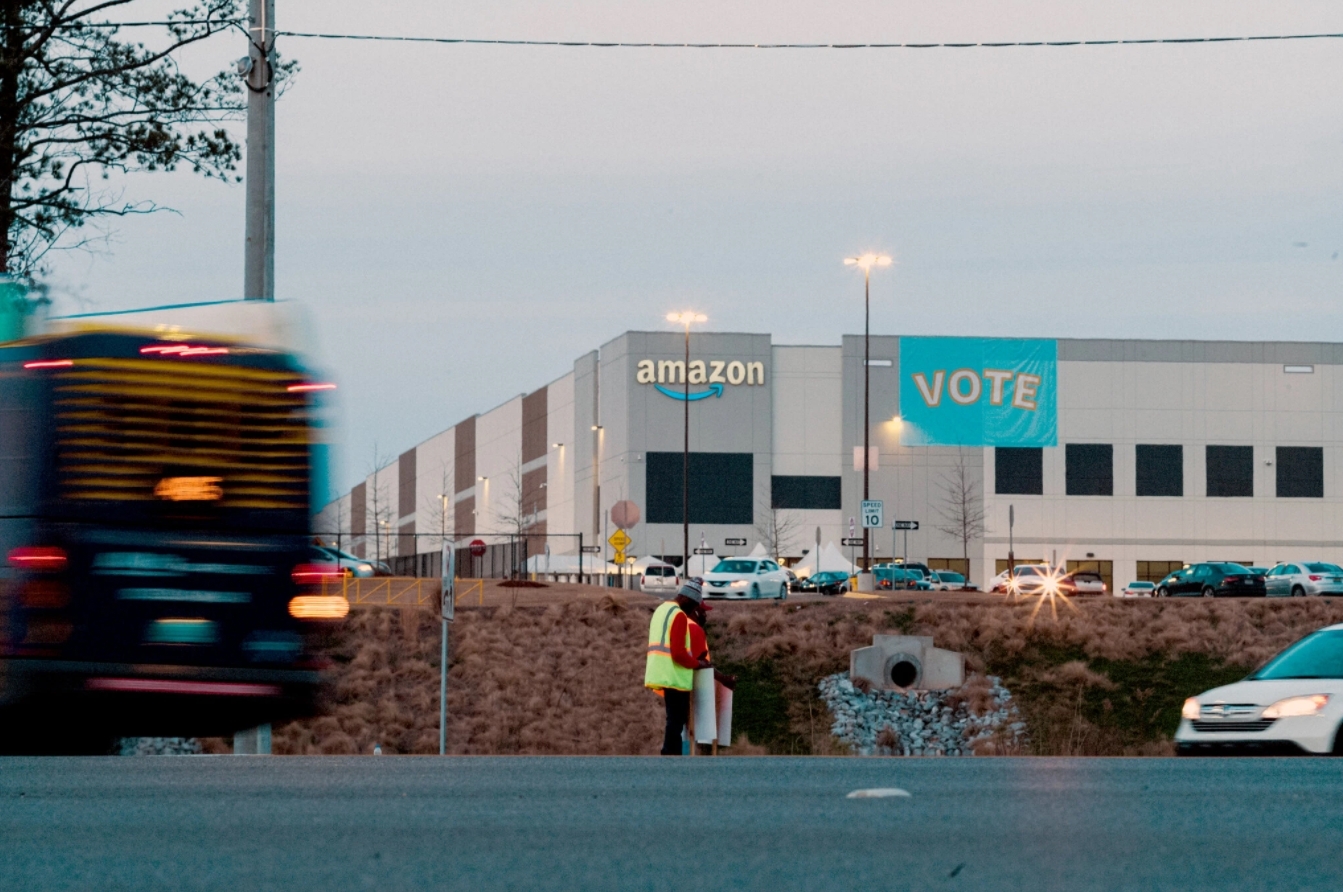Welcome to DU!
The truly grassroots left-of-center political community where regular people, not algorithms, drive the discussions and set the standards.
Join the community:
Create a free account
Support DU (and get rid of ads!):
Become a Star Member
Latest Breaking News
General Discussion
The DU Lounge
All Forums
Issue Forums
Culture Forums
Alliance Forums
Region Forums
Support Forums
Help & Search
General Discussion
Related: Editorials & Other Articles, Issue Forums, Alliance Forums, Region ForumsUnion Loss May Bring New Phase of Campaign Against Amazon
After an election defeat in Alabama, many in labor are shifting strategies, wary of the challenges and expense of winning votes site by site.https://www.nytimes.com/2021/04/09/business/economy/amazon-labor-unions.html

The lopsided vote against a union at Amazon’s warehouse in Bessemer, Ala., was a major disappointment to organized labor, which regards the fight with Amazon as central to labor’s survival. Yet the defeat doesn’t mark the end of the campaign against Amazon so much as a shift in strategy. In interviews, labor leaders said they would step up their informal efforts to highlight and resist the company’s business and labor practices rather than seek elections at individual job sites, as in Bessemer. The approach includes everything from walkouts and protests to public relations campaigns that draw attention to Amazon’s leverage over its customers and competitors. “We’re focused on building a new type of labor movement where we don’t rely on the election process to raise standards,” said Jesse Case, secretary-treasurer of a Teamsters local in Iowa that is seeking to rally the state’s Amazon drivers and warehouse workers to pressure the company.
The strategy reflects a paradox of the labor movement: While the Gallup Poll has found that roughly two-thirds of Americans approve of unions — up from half in 2009, a low point — it has rarely been more difficult to unionize a large company. One reason is that labor law gives employers sizable advantages. The law typically forces workers to win elections at individual work sites of a company like Amazon, which would mean hundreds of separate campaigns. It allows employers to campaign aggressively against unions and does little to punish employers that threaten or retaliate against workers who try to organize. Lawyers representing management say that union membership has declined — from about one-third of private-sector workers in the 1950s to just over 6 percent today — because employers have gotten better at addressing workers’ needs. “Employees have access to the company in order to express any concerns they might have,” said Michael J. Lotito of the firm Littler Mendelson.
But labor leaders say wealthy, powerful companies have grown much bolder in pressing the advantages that labor law affords them. Before Amazon, few companies better epitomized this posture than Walmart, which union leaders targeted in the 1990s and 2000s, convinced that the retail giant was driving down wages and benefits across the retail industry. Walmart, in turn, took sometimes drastic steps to keep unions at bay. In 2000, after a small group of meat cutters at a Texas store decided to unionize, the company eliminated the position across other stores. Five years later, when workers at a Walmart in Quebec were seeking to join the United Food and Commercial Workers union, the company shut the store. Walmart said the store was not performing well financially.
“Everywhere they tried, they were defeated,’’ Nelson Lichtenstein, a labor historian at the University of California, Santa Barbara, said of the unions. “Walmart would send teams to swamp the stores to work against a union. They are good at it.” As with Walmart, labor leaders believed it was critical to establish a foothold at Amazon, which influences pay and working conditions for millions of workers thanks to the competitive pressure it puts on rivals in industries like groceries and fashion. But the labor movement’s failure to make inroads at Walmart despite investing millions of dollars has loomed over its thinking on Amazon. “They felt so burned by trying to organize Walmart and getting basically nowhere,” said Ruth Milkman, a sociologist of labor at the Graduate Center of the City University of New York.
snip
InfoView thread info, including edit history
TrashPut this thread in your Trash Can (My DU » Trash Can)
BookmarkAdd this thread to your Bookmarks (My DU » Bookmarks)
0 replies, 637 views
ShareGet links to this post and/or share on social media
AlertAlert this post for a rule violation
PowersThere are no powers you can use on this post
EditCannot edit other people's posts
ReplyReply to this post
EditCannot edit other people's posts
Rec (2)
ReplyReply to this post